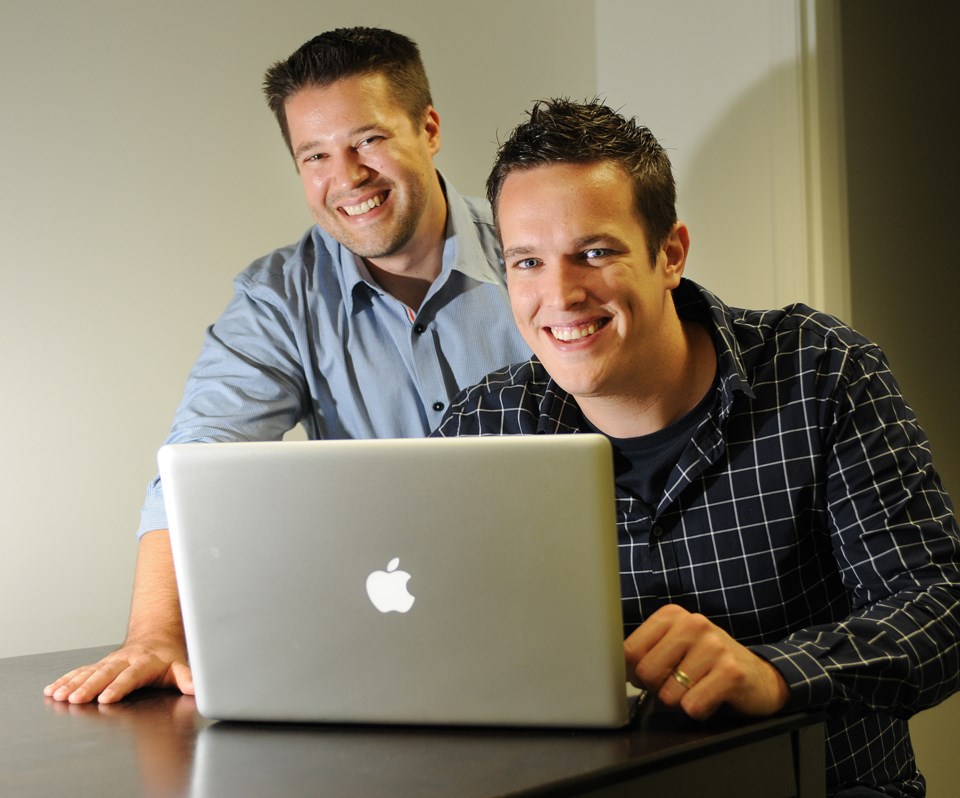Checking out church websites a couple of years ago, Matt Morrison realized that most were a decade or more behind the times. As a volunteer, he had created a website for the church he belonged to and, as these things happen, other ministers started knocking on his door for help.
Things got so busy, Morrison realized he’d found a niche, and he partnered with Luke Cowell to create ChurchOS, a company that now builds websites for churches. The name is a play on “operating system,” a term perhaps more familiar to the digital set than the traditional church crowd, but it’s taken off. Few people fantasize about becoming rich doing small jobs for churches. Yet, Matt and Luke (I wasn’t the first to suggest they really need to hire a Mark and a John) created a formula that seems to be working quite divinely for them and has so far worked for close to 100 churches.
Morrison is a bit of an evangelist for technology. He says the internet is the place where people search for a religious home base now.
“Ninety-five percent of people are coming to the website before they walk in the door,” he says. “In other words, 15 years ago, a church would’ve made sure their lobby was vacuumed, the walls were painted nice, so that when someone walked in the first impression was great. That’s no longer the first impression. Now it’s ‘does your website look great?’ You have about five seconds to show someone that you are a welcoming community before they click away to another one, so it is a prominent part of whether your community’s going to grow.”
Design is important, but Morrison insists content is even more crucial.
“What I want to know as a potential person coming to your church is what is the heart of your church, why are you doing all of this?” Morrison says. “And I think that’s what churches need to do, start to bring the story of why they exist to the forefront and talk about how it is changing lives … Is this a community that fits my family, that would be welcoming for us?
From day one, we wanted to make the content forward. Who are you as a church that will actually enrich people?”
But can creating sites for churches be enriching for web developers? This is where Morrison and Cowell applied the age-old economic adage of volume to their business idea.
Part of the problem was that churches need more from their website than the average business does. Most businesses need a simple advertisement and engagement platform.
Churches are trying to build communities using the web. And that costs more, for features like sermon players, bulletin email servers, and online tithing tools. But Morrison and Cowell realized that, while churches need sites that are different from businesses, most churches ultimately need a website that is pretty similar to what every other church needs.
“All of a sudden, I had the dawn-on-me moment that they’re all looking for the same kind of thing,” says Morrison. “The idea was to build the skeleton of the site once, build it really well, and then kind of put different skins on it so that each church would be different.”
Morrison says churches were getting quotes of $10,000 to $15,000 from web developers and the response was predictable. Unlike most web designers (or businesses of any kind), they list the full costs right on their site. A church can be set up with a basic site within three weeks for $995 and a monthly fee of $39. Add-ons are likewise priced up-front so the inevitable committees or tightfisted church treasurer knows exactly what they’re getting into. Moreover, the monthly fee means ChurchOS takes care of everything, so typically understaffed churches do not need to worry about web hosting or domain renewal.
“They’re getting their own websites, but not having to reinvent the wheel every time,” Morrison says. They started ChurchOS in 2009 and launched the first five sites in 2010. They are at about 90 sites now, including six in the city of Vancouver and about 70 per cent within B.C. They are emphatically ecumenically Christian — they are happy to work with any
Christian church across the not insignificant denominational divides. And they are expanding — hiring staff and branching out to build sites for charitable organizations that do good in the world.
The entrepreneurs admit there remains some systemic suspicion about the Internet among some religious folks — and this needs to be overcome.
“This is a major way that people are connecting,” Morrison says of the Internet and social media. “You would just be missing out on a massive opportunity. Obviously the Internet can be a scary place because of what lurks there. But the world is that way. And we are called to go into the world as Christians.”
pacificspiritpj@gmail.com



